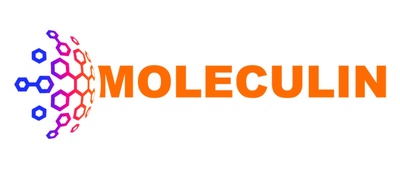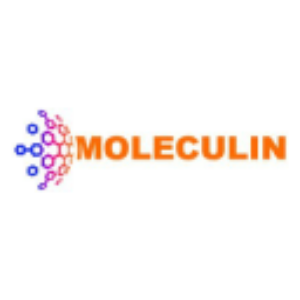Moleculin Announces Publication of Data Supporting Development of Non-Cardiotoxic Anthracycline for the Treatment of Cancer in Peer-Reviewed European Journal of Cancer
Moleculin Biotech, Inc. (NASDAQ: MBRX) announced the publication of data supporting Annamycin, a non-cardiotoxic anthracycline. The research shows Annamycin's potential in treating hard-to-treat tumors. An independent review of 42 subjects indicated no cardiotoxicity, distinguishing Annamycin from traditional anthracyclines like doxorubicin. Key modifications to Annamycin have enhanced its efficacy against multidrug-resistant tumors. Annamycin is currently being evaluated for soft tissue sarcoma and acute myelogenous leukemia. The manuscript, titled ‘Anthracycline-induced cardiotoxicity – are we about to clear this hurdle?’ was published in the European Journal of Cancer.
- Annamycin shows no cardiotoxicity as per an independent expert review of 42 subjects.
- Annamycin has been modified to increase efficacy against multidrug-resistant tumors.
- Demonstrated potential to treat additional indications beyond AML and STS.
- Published data reinforces Annamycin's promise as a cancer treatment option.
- None.
Annamycin appears to be a highly promising non-cardiotoxic, potent TOPO-II inhibitor able to overcome MDR-1 that, due to its unique organotropism, is also able to target hard-to-treat metastasis
In an independent expert cardiology review of 42 subjects evaluated as of the date of the review, Annamycin has demonstrated no evidence of cardiotoxicity
Annamycin is currently being evaluated in clinical studies for the treatment of soft tissue sarcoma (STS) metastatic to the lungs and acute myelogenous leukemia (AML)
The published manuscript discusses clinically evaluated doxorubicin analogs that were developed as potentially non-cardiotoxic anticancer agents and includes Annamycin. The anthracycline family of drugs (i.e., doxorubicin, daunorubicin, epirubicin, idarubicin) has significantly contributed to marked improvements of overall survival (OS) during the last few decades and represents one of the most potent cytostatic drugs for cancer treatment across various histologies (5-year overall survival of
"Despite the major impact of anthracyclines on overall survival in the treatment of a wide spectrum of solid tumors and hematologic malignancies, the development of life-threatening cardiotoxicity still remains a huge challenge for physicians treating cancer patients. Annamycin has consistently demonstrated little to no cardiotoxicity to date and we continue to be highly encouraged by its potential. The discussion throughout this manuscript further demonstrates that the development of non-cardiotoxic anthracyclines is not only feasible, but an elegant and much-needed approach to eliminate this potentially life-threatening adverse event in patients with cancer," commented
Key Highlights:
- An initial key modification leading to the design of Annamycin was the replacement of a basic amine at the C-3' position with a hydroxy group, which was shown to significantly reduce cardiotoxicity when compared with doxorubicin. Removal of the basic amine from doxorubicin not only decreased cardiotoxicity, but also led to increased activity against multidrug resistant (MDR-1) tumors.
- In addition to the C-3' hydroxylation, Annamycin incorporates several important structural modifications, including demethoxylation at
C-4 , epimerization atC-4 ', and for the first time in this class of agents, an iodine atom was introduced at C-2' position. - L-ANN (Annamycin) has been shown to be a consistently more potent inducer of apoptosis in vitro than doxorubicin and more efficacious in vivo (in animal models) against MDR-1 tumors.
- Separate in vitro studies documented L-ANN as a potent TOPO-II inhibitor.
- Another critical property differentiating L-ANN from doxorubicin is its organotropism. This indicates that there is a high uptake of L-ANN in several organs, including the lungs, which significantly exceeds that of doxorubicin.
- An incremental increase was noted for L-ANN and in two animal studies the Cmax of L-ANN in lungs was > 30-fold greater than that of doxorubicin. With weekly intravenous doses of 5.2 mg/kg L-ANN for 6 weeks or 3.1 mg/kg and 4.2 mg/kg L-ANN for 10 weeks, the cardiotoxicity of L-ANN was less than equitoxic doses of doxorubicin.
- The design and development of novel, potentially non-cardiotoxic anthracyclines that are already under clinical evaluation suggests that the approach based on structural modification leading to elimination of drug interactions with cardiotoxic pathways/targets may be a valid and highly promising approach. These promising results suggest that the identification of non-cardiotoxic, clinically effective anthracycline-based anticancer agent is a real possibility.
- The authors of the article include Dr.
Wolfram Dempke (Moleculin's European Chief Medical Officer), Dr.Sandra Silberman (Moleculin's Chief Medical Officer – New Products) and Dr.Waldemar Priebe (Moleculin's Chair -Scientific Advisory Board ).
Annamycin is the Company's next-generation anthracycline that has been designed to be non-cardiotoxic and has been shown in animal models to accumulate in the lungs at up to 30-fold the level of doxorubicin (a commonly prescribed anthracycline), as well as demonstrating the ability to avoid the multidrug resistance mechanisms that typically limit the efficacy of doxorubicin and other currently prescribed anthracyclines. Annamycin is currently in development for the treatment of relapsed or refractory AML and STS lung metastases and the Company believes it may have the potential to treat additional indications.
About
Additionally, the Company is developing WP1066, an Immune/Transcription Modulator capable of inhibiting p-STAT3 and other oncogenic transcription factors while also stimulating a natural immune response, targeting brain tumors, pancreatic and other cancers, and WP1220, an analog to WP1066, for the topical treatment of cutaneous T-cell lymphoma. Moleculin is also engaged in the development of a portfolio of antimetabolites, including WP1122 for the potential treatment of COVID-19 and other viruses, as well as cancer indications including brain tumors, pancreatic and other cancers.
For more information about the Company, please visit www.moleculin.com and connect on
Forward-Looking Statements
Some of the statements in this release are forward-looking statements within the meaning of Section 27A of the Securities Act of 1933, Section 21E of the Securities Exchange Act of 1934 and the Private Securities Litigation Reform Act of 1995, which involve risks and uncertainties. Although Moleculin believes that the expectations reflected in such forward-looking statements are reasonable as of the date made, expectations may prove to have been materially different from the results expressed or implied by such forward-looking statements. Moleculin has attempted to identify forward-looking statements by terminology including 'believes,' 'estimates,' 'anticipates,' 'expects,' 'plans,' 'projects,' 'intends,' 'potential,' 'may,' 'could,' 'might,' 'will,' 'should,' 'approximately' or other words that convey uncertainty of future events or outcomes to identify these forward-looking statements. These statements are only predictions and involve known and unknown risks, uncertainties, and other factors, including those discussed under Item 1A. "Risk Factors" in our most recently filed Form 10-K filed with the
Investor Contact:
JTC Team, LLC
Jenene Thomas
(833) 475-8247
MBRX@jtcir.com
1 https://doi.org/10.1016/j.ejca.2023.02.019
![]() View original content to download multimedia:https://www.prnewswire.com/news-releases/moleculin-announces-publication-of-data-supporting-development-of-non-cardiotoxic-anthracycline-for-the-treatment-of-cancer-in-peer-reviewed-european-journal-of-cancer-301766408.html
View original content to download multimedia:https://www.prnewswire.com/news-releases/moleculin-announces-publication-of-data-supporting-development-of-non-cardiotoxic-anthracycline-for-the-treatment-of-cancer-in-peer-reviewed-european-journal-of-cancer-301766408.html
SOURCE
FAQ
What is Annamycin and its significance for MBRX?
What were the results of the independent review of Annamycin?
In which clinical studies is Annamycin currently being evaluated?








